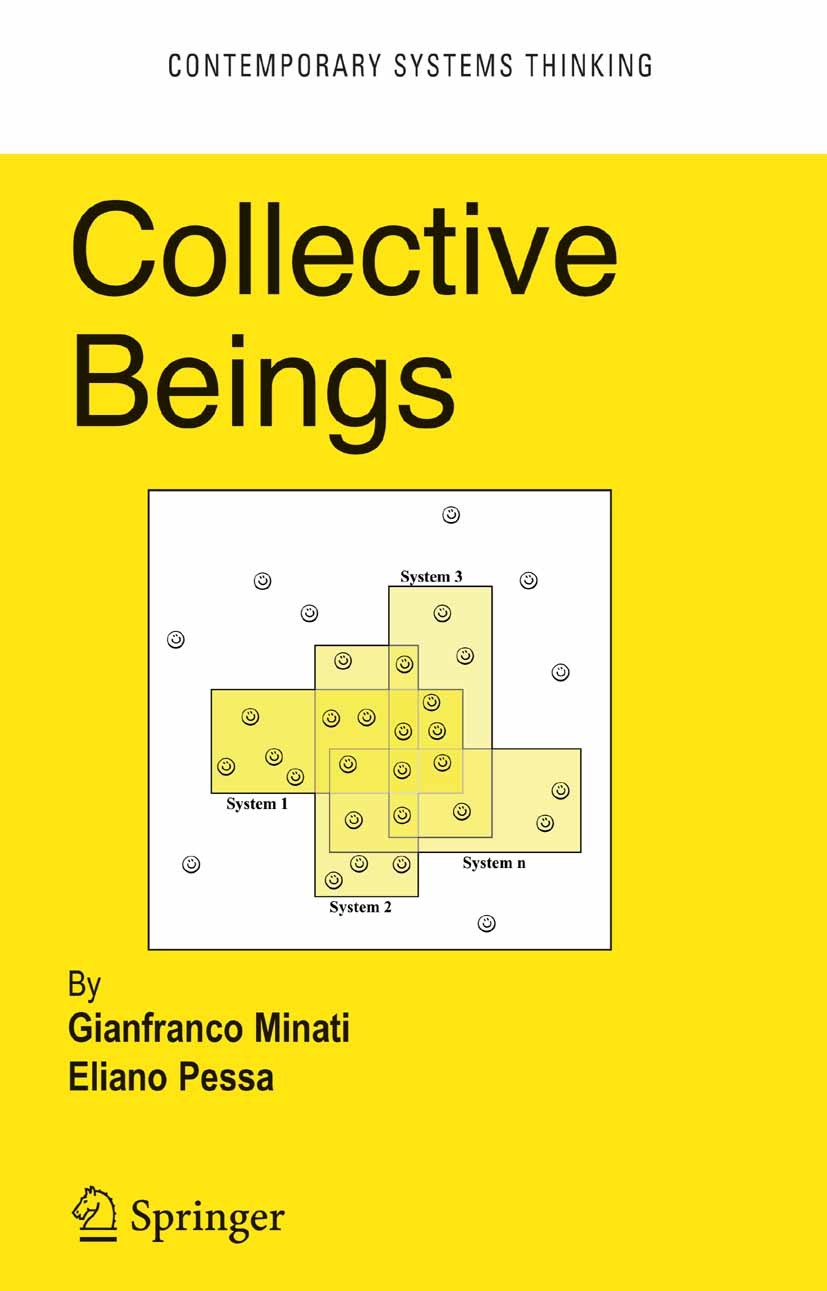| 书目名称 | Collective Beings |
| 编辑 | Gianfranco Minati,Eliano Pessa |
| 视频video | http://file.papertrans.cn/230/229552/229552.mp4 |
| 概述 | The attribute ‘systemic‘ means that this framework fits within Systemics, a thinking movement which originated from General System Theory (proposed by Von Bertalanffy) and from Cybernetics (introduced |
| 丛书名称 | Contemporary Systems Thinking |
| 图书封面 |  |
| 描述 | Microscopic models 226 The intrinsic limitations of the theory of phase transitions 229 5. 3 Quantum Field Theory 230 5. 4 Spontaneous Symmetry Breaking 239 5. 5 Non-ideal models of emergence 249 5. 5. 1 Neural networks 250 5. 5. 2 Cellular Automata 261 5. 5. 3 Artificial Life 265 5. 6 The role of noise 273 5. 7 The relationships between traditional and non-traditional models 279 Chapter 6. The Role of Ergodicity 291 6. 1 Some definitions related to ergodicity 293 6. 1. 1 Ergodic 293 6. 1. 2 Disciplinary definitions 293 6. 2 Ergodicity and stationarity 300 6. 3 Ergodicity in Collective Beings 302 6. 4 Emergence, Collective Beings, and Ergodicity 306 6. 5 Further considerations 309 6. 6 Some remarks and possible lines of research 313 Chapter 7. Applications to Social Systems (1): growth, development, sustainable development and ethics 321 7. 1 Growth, Development and Sustainable Development 323 7. 1. 1 Representing Growth 324 7. 1. 2 Development 326 7. 1. 3 Managing for development 334 7. 2 Ethics 336 7. 2. 1 Ethics and Quality 340 7. 2. 2 Effectiveness and advantages of Ethics 342 7. 2. 3 Ethics for quality and effectiveness 343 7. 2. 4 Ethics and Globalization 346 viii Contents Ch |
| 出版日期 | Book 2007 |
| 关键词 | Sage; ethics; knowledge management; linear optimization; organizations; robot; social systems |
| 版次 | 1 |
| doi | https://doi.org/10.1007/978-0-387-35941-0 |
| isbn_softcover | 978-1-4419-4205-0 |
| isbn_ebook | 978-0-387-35941-0Series ISSN 1568-2846 |
| issn_series | 1568-2846 |
| copyright | Springer-Verlag US 2007 |
 |Archiver|手机版|小黑屋|
派博传思国际
( 京公网安备110108008328)
GMT+8, 2026-2-8 21:20
|Archiver|手机版|小黑屋|
派博传思国际
( 京公网安备110108008328)
GMT+8, 2026-2-8 21:20


